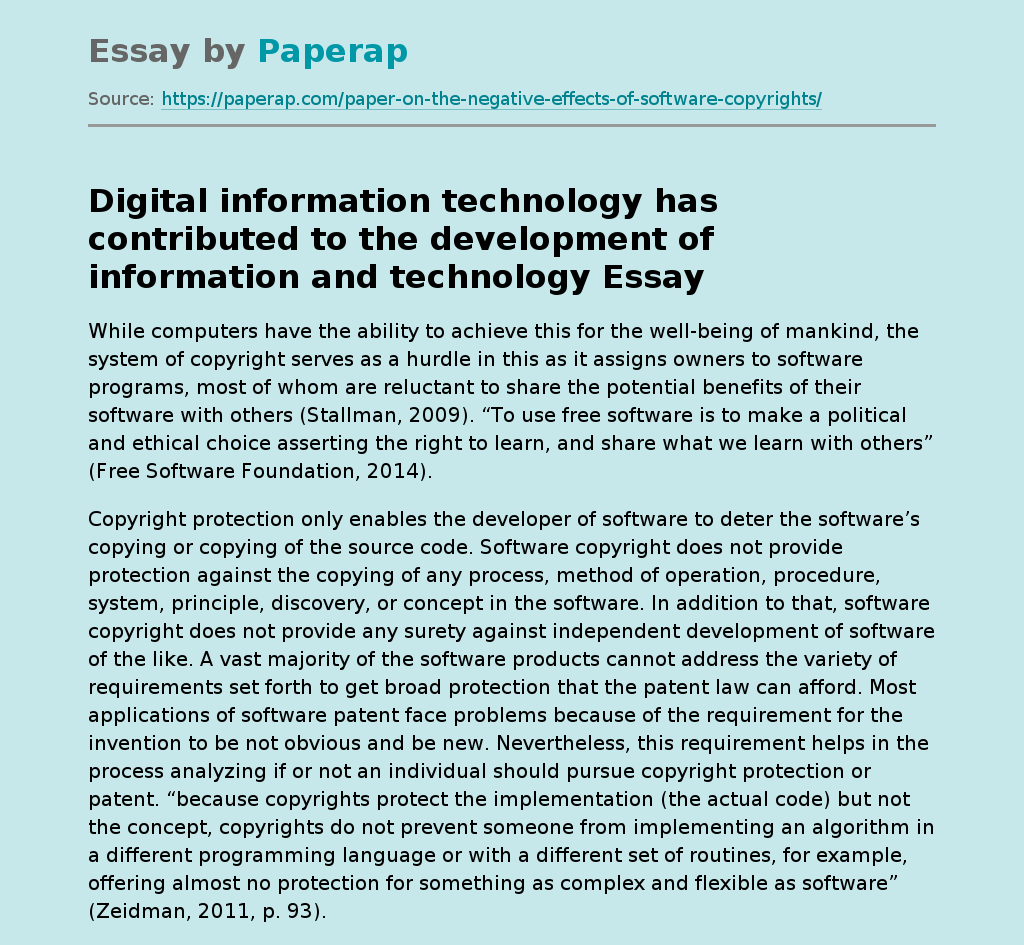Digital tech boosts info development
While computers have the ability to achieve this for the well-being of mankind, the system of copyright serves as a hurdle in this as it assigns owners to software programs, most of whom are reluctant to share the potential benefits of their software with others (Stallman, 2009). “To use free software is to make a political and ethical choice asserting the right to learn, and share what we learn with others” (Free Software Foundation, 2014).
Copyright protection only enables the developer of software to deter the software’s copying or copying of the source code.
Software copyright does not provide protection against the copying of any process, method of operation, procedure, system, principle, discovery, or concept in the software. In addition to that, software copyright does not provide any surety against independent development of software of the like. A vast majority of the software products cannot address the variety of requirements set forth to get broad protection that the patent law can afford.
Most applications of software patent face problems because of the requirement for the invention to be not obvious and be new. Nevertheless, this requirement helps in the process analyzing if or not an individual should pursue copyright protection or patent. “because copyrights protect the implementation (the actual code) but not the concept, copyrights do not prevent someone from implementing an algorithm in a different programming language or with a different set of routines, for example, offering almost no protection for something as complex and flexible as software” (Zeidman, 2011, p. 93).
Digital tech boosts info development. (2019, Dec 05). Retrieved from https://paperap.com/paper-on-the-negative-effects-of-software-copyrights/
